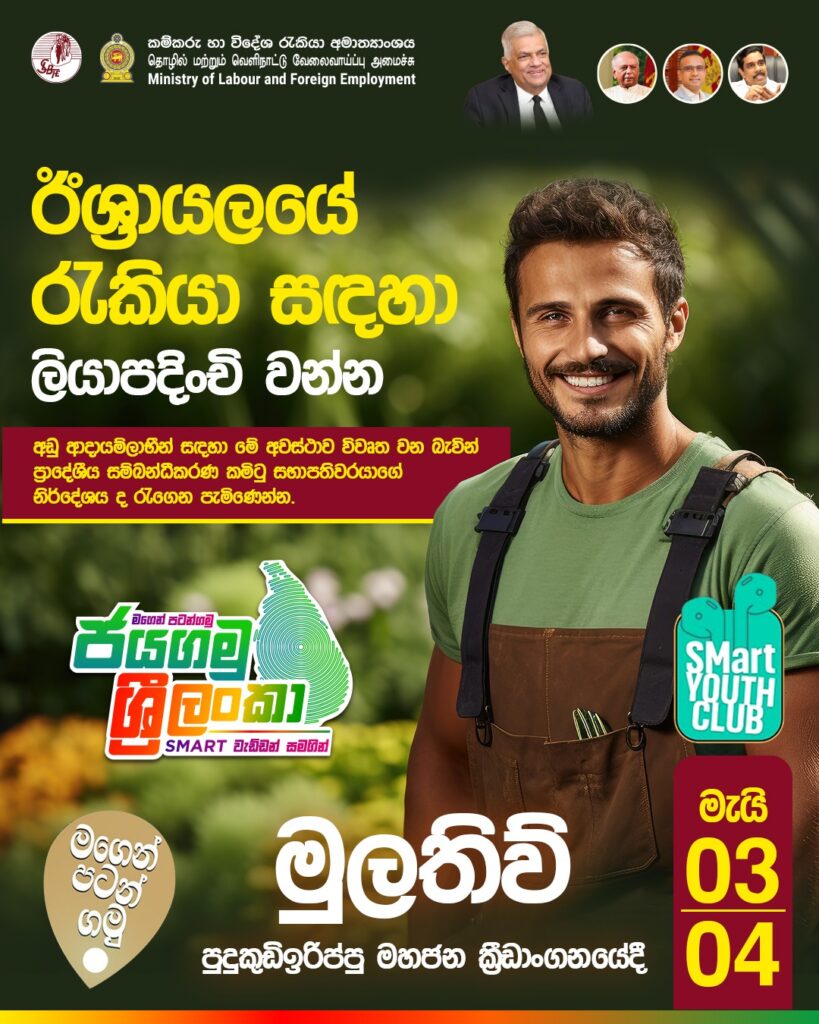By: Staff Writer
April 29, Colombo (LNW): Sri Lanka will be completely reversing the ban on oil palm cultivation and its importation in an effort to ensure the flourishing of grassroots economies via the expanding cultivation for the benefit of plantation companies and smallholders alike, informed official sources confirmed.
The government has been delaying the recommendations of an expert committee report on how to permit oil palm cultivation in identified Mahaweli areas and other areas, without deciding for nearly five months.
According to the Agriculture and Plantation Industries Ministry, the ministry forwarded the report to the secretary to the Cabinet of Ministers on January 12.
In November 2022, the Cabinet of Ministers decided to appoint an expert committee to explore the possibility of permitting oil palm cultivation in identified Mahaweli areas and specified other areas, which include the Regional Plantation Companies (RPCs).
The committee was headed by an additional secretary to the ministry and was made up of experts from of the Plantation Industries Ministry, Mahaweli Authority, Irrigation Department and Coconut Research Institute.
The extensive report provides instructions and directions, if the government decides to lift the ban on oil palm in these specified areas. A ministry official noted that it’s up to the Cabinet of Ministers, chaired by the president, to make a decision
Former Finance Minister Ravi Karunanayake said that the government will remove palm oil prohibition in 2024 correcting the previous policy decision taken by the previous Gotabaya Rajapaksa regime in April 2021.
Mr. Rajapaksa who was the then President ordered the ban on the importation of Palm Oil into Sri Lanka and its cultivation directing to up root the existing oil palm cultivations locally in 2021.
Mr. Karunanayake noted that he would talk to President Ranil Wickremesinghe and make sure that the ban is lifted while permitting palm oil cultivation in the country once again following consultations with experts in the industry.
The association of palm oil growers has informed the former finance minister that palm oil cultivation could generate more foreign exchange revenue than the entire income from tea and rubber.
According to them, an acre of palm oil cultivation can generate an average of Rs.100,000 a month. At present, Sri Lanka consumes 220,000 metric tons of palm oil of which only 12 percent is produced locally.
Palm oil provides livelihood opportunities for a large number of farmers and also for the Sri Lankan farmers and workers in remote rural areas where work is hard to find.
Palm oil is used by Sri Lankans in almost every aspect of life; from toothpaste to shampoo to soap to lipstick to confectionery – palm oil is an integral component. It is in 50 percent of all consumer products and vital for industrial applications several industrialists pointed out.


